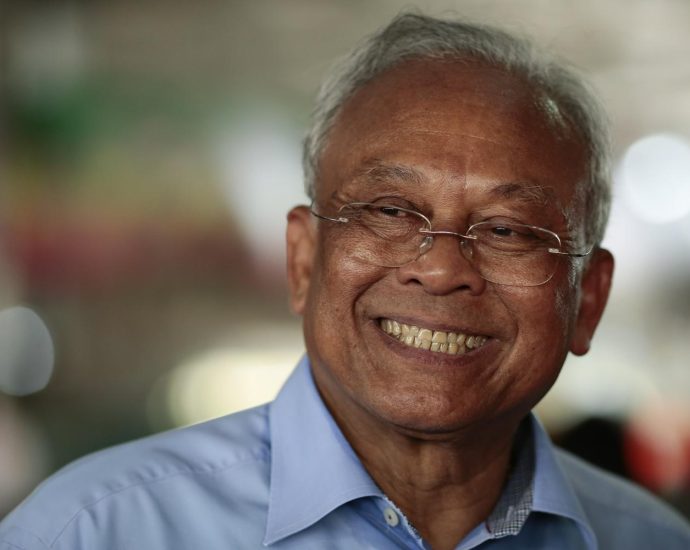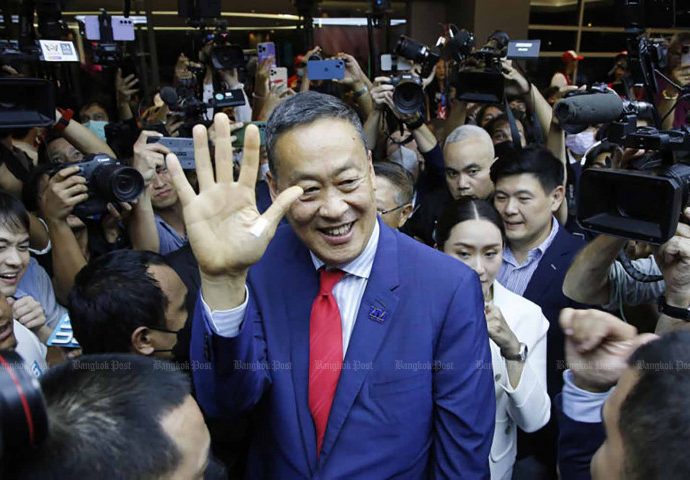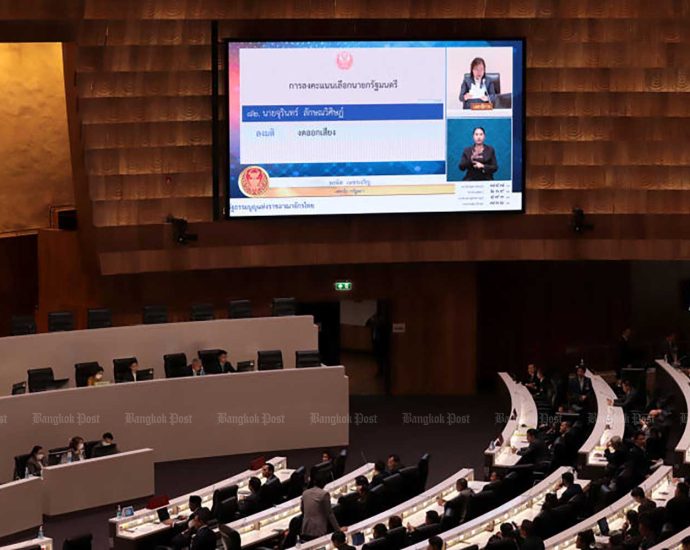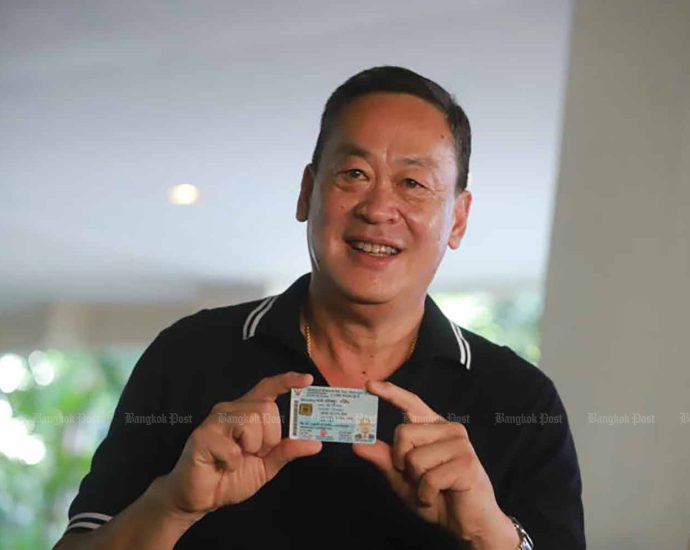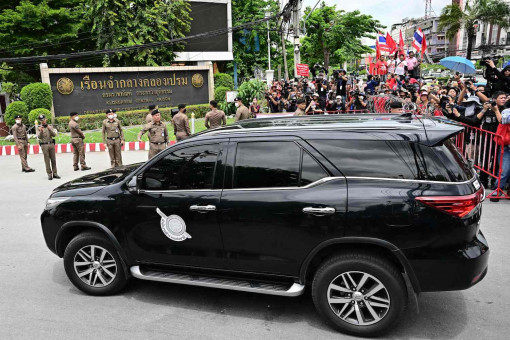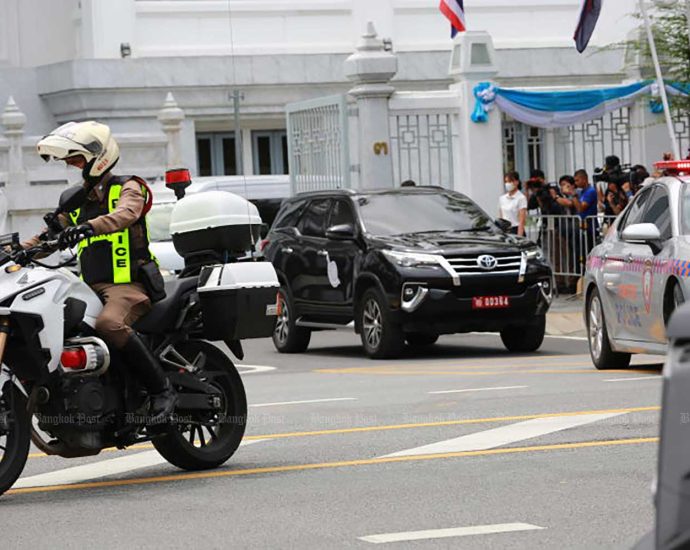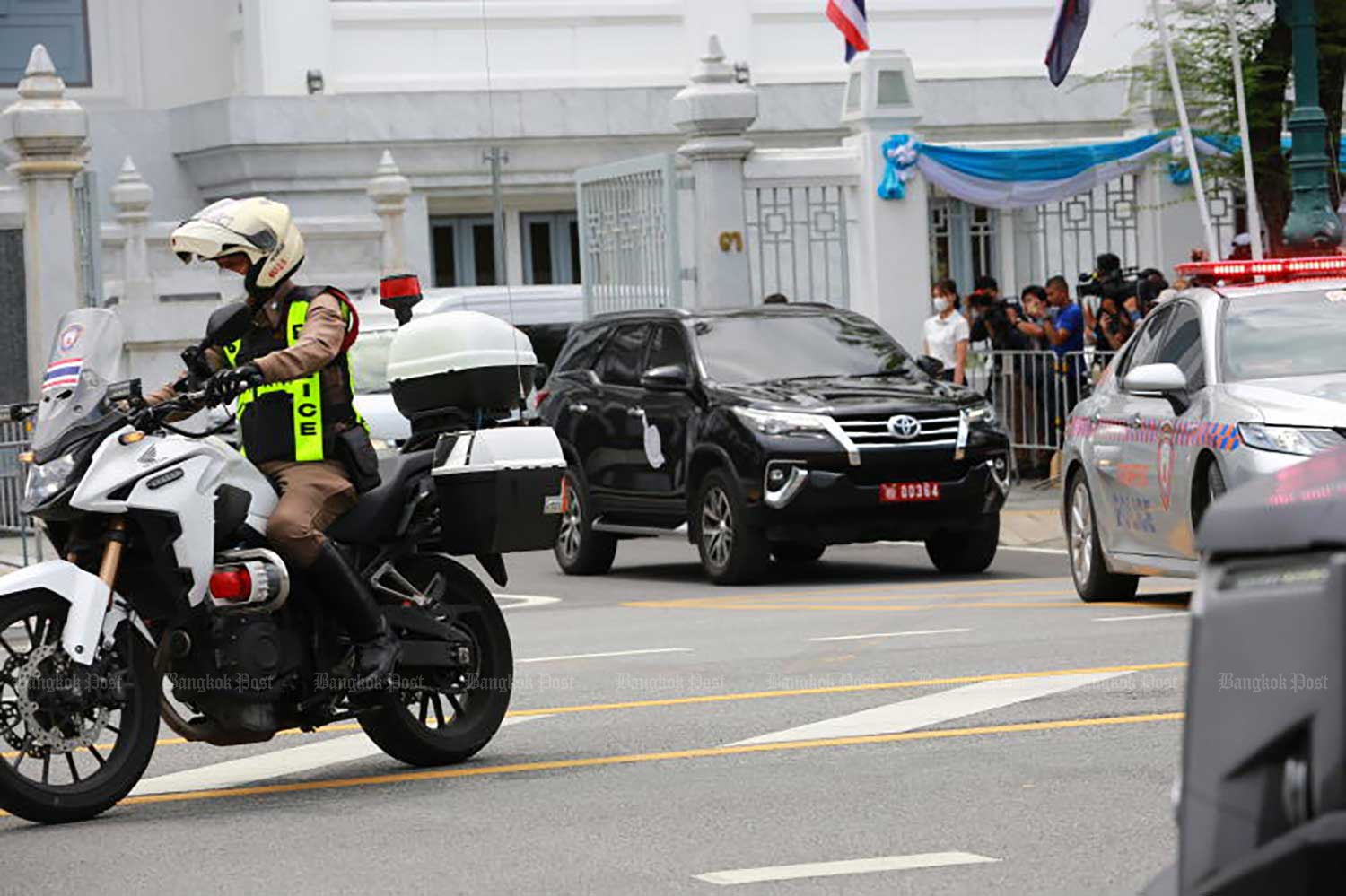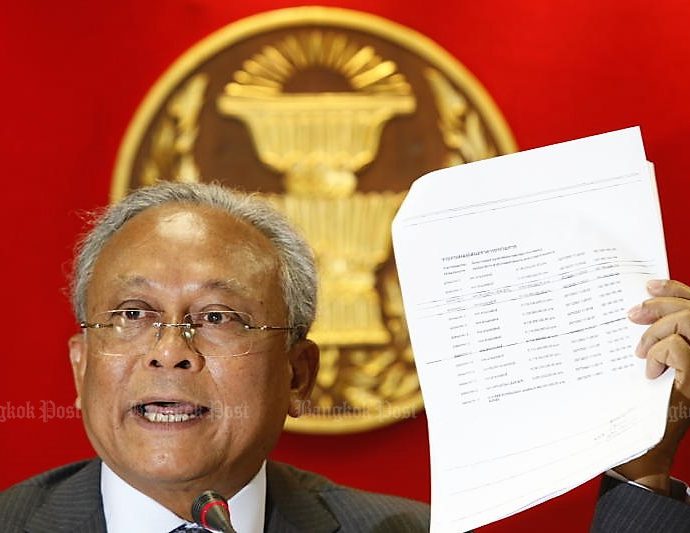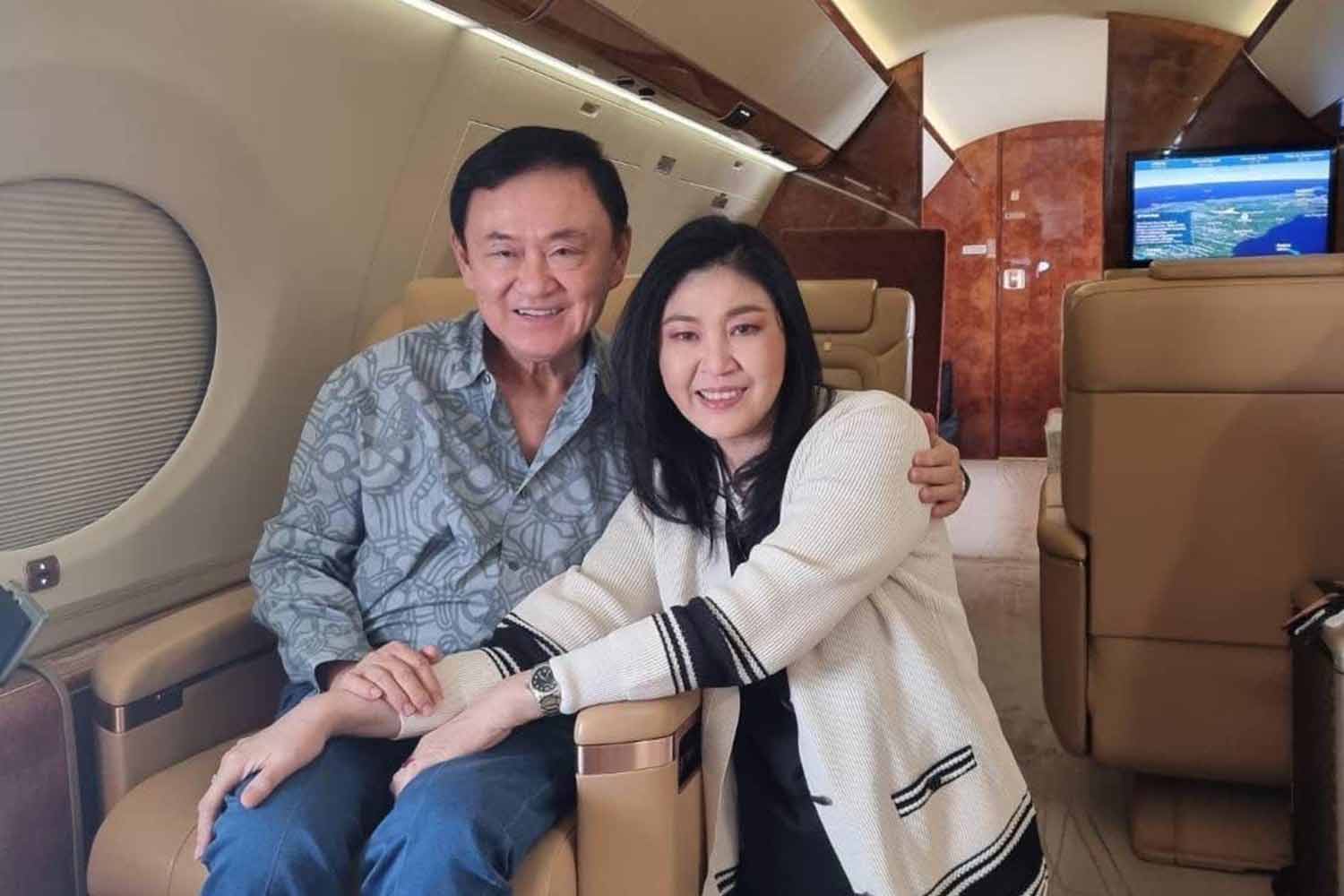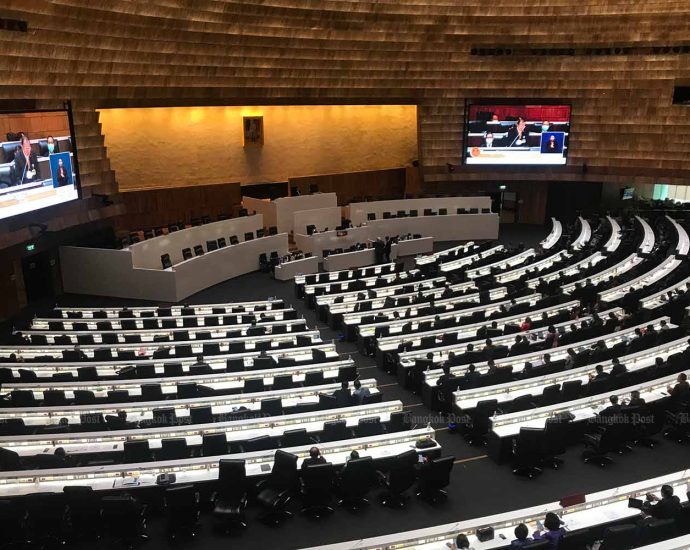Former PM starts 8-year jail term in hospital

Thaksin can apply for royal pardon now
Thaksin Shinawatra is in a private room on the medical ward of Bangkok Remand Prison and is being monitored around the clock due to four underlying health conditions including heart and lung problems, the head of the Department of Corrections said yesterday.
Aryut Sinthoppan briefed journalists on the department’s plans for the 74-year-old inmate after the former prime minister was brought to the prison after he received an eight-year sentence by the Supreme Court earlier in the day over former graft cases.
It marks the first time Thaksin has returned to Thailand in 15 years, having spent the interim in exile.
Mr Aryut said the prison would provide proper security for Thaksin and ensure appropriate living conditions, food, drinking water and visits.
Since Thaksin is likely to be visited by family members, close associates and people from various organisations, he will be provided with an appropriate space to meet with them, Mr Aryut said.
Moreover, since he is an elderly person, his health will be closely monitored to ensure proper medical care.
Doctors from the Department of Corrections Hospital examined Thaksin and found he has four underlying diseases, said Sithi Sutheewong, its deputy director-general.
In accordance with the procedures for elderly prisoners with illnesses, Thaksin has initially been put in a separate room in Zone 7, the medical centre of Bangkok Remand Prison.
He is eligible to apply for a royal pardon from his first day in jail, Mr Sitthi said. The petition may be prepared by Thaksin or his relatives.
After it is submitted, it will be considered by a committee from the Department of Corrections.
The committee will then send the petition to the Ministry of Justice and the prime minister before being forwarded to His Majesty the King for consideration.
Mr Sitthi said there are two types of royal pardons — for groups of people and for individuals. Thaksin’s case would fall in the second category. The process may be completed in one to two months, depending on the documents attached and royal discretion.
Caretaker Deputy Prime Minister Wissanu Krea-ngam, the government’s legal expert, said earlier that if a pardon is not granted, the applicant has to wait two years before seeking another.
Wattanachai Mingbancherdsuk, director of the Department of Corrections Hospital, said Thaksin’s medical records indicate he suffers from heart disease, a lung ailment, high blood pressure and spondylosis, or degeneration of the bones and discs in the spine.
In light of those conditions, Thaksin is considered to be in a vulnerable group, requiring close surveillance, he said.
Nastee Thongplad, chief of Bangkok Remand Prison, said all inmates, including Thaksin, are required to keep their hair short and wear a white shirt.
The room where Thaksin is staying has electric fans but no aircon, with an adjoining room for doctors, he added.
Other high-profile prisoners in the same prison include Boonsong Teriyapirom, a former commerce minister in the Yingluck Shinawatra government. He was sentenced to 48 years after being found guilty of corruption in the former government’s rice-pledging scheme.
Following royal pardons and various reductions of jail terms, his term has been shortened, and he is due to be released on April 21, 2028.
Also serving time is Tarit Pengdit, former director-general of the Department of Special Investigation.
He was sentenced to two years by the Supreme Court for unfairly pursuing murder charges against former prime minister Abhisit Vejjajiva and his then-deputy Suthep Thaugsuban for ordering a crackdown on red-shirt protesters during the violent rallies in Bangkok in 2010.
A human rights activist slammed the Department of Corrections for giving Thaksin a private cell, which was described as an unfair privilege.
Angkhana Neelapaijit said other inmates may feel discriminated against because they come from a lower socio-economic background.
She said only inmates who require medical treatment are allowed to stay at the prison hospital. However, prior photos of Thaksin on his private jet or in a room with his children and grandchildren seem to show him in relatively good health.
Ms Angkhana stated that many elderly inmates also share Thaksin’s health conditions, but they are not allowed the privilege of staying in a private cell.


